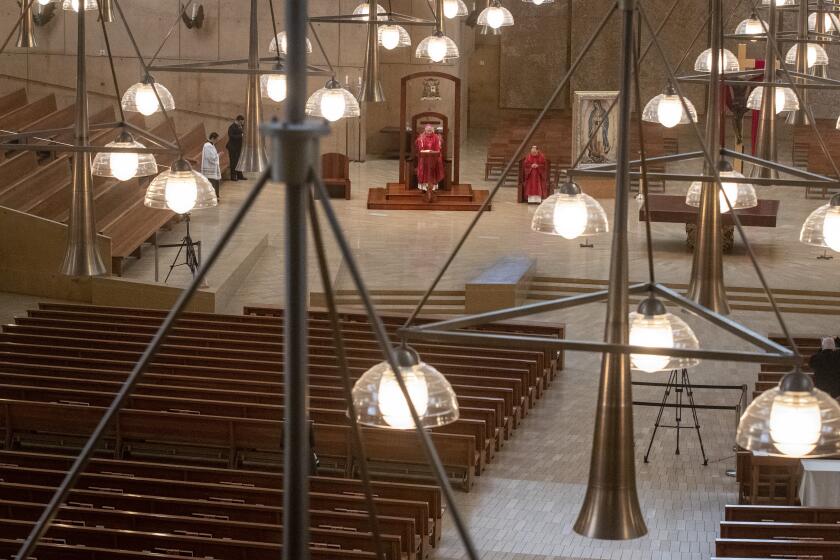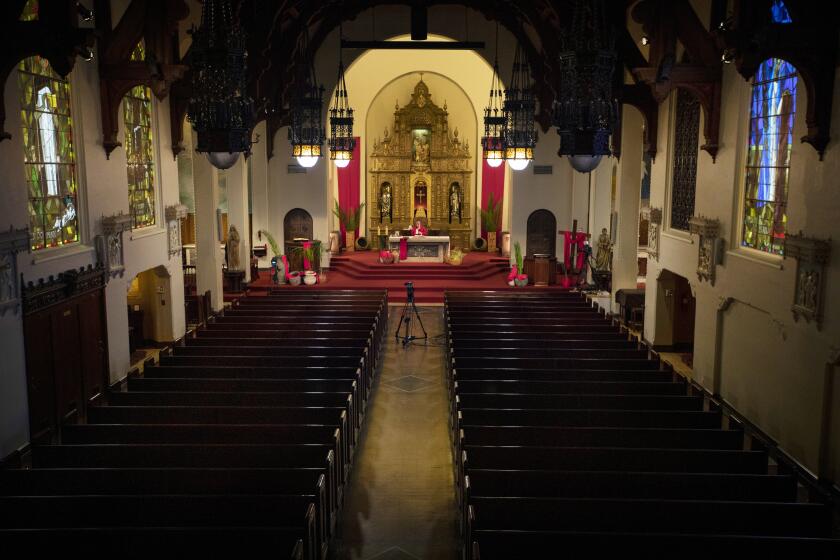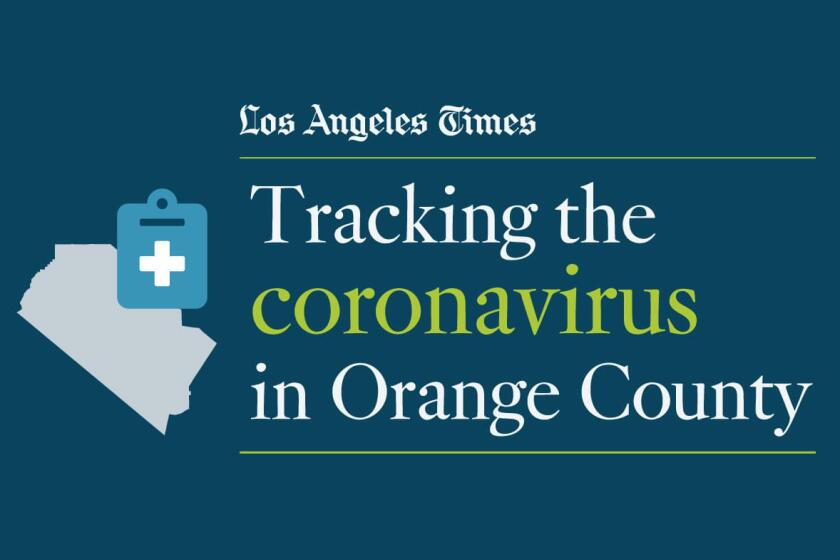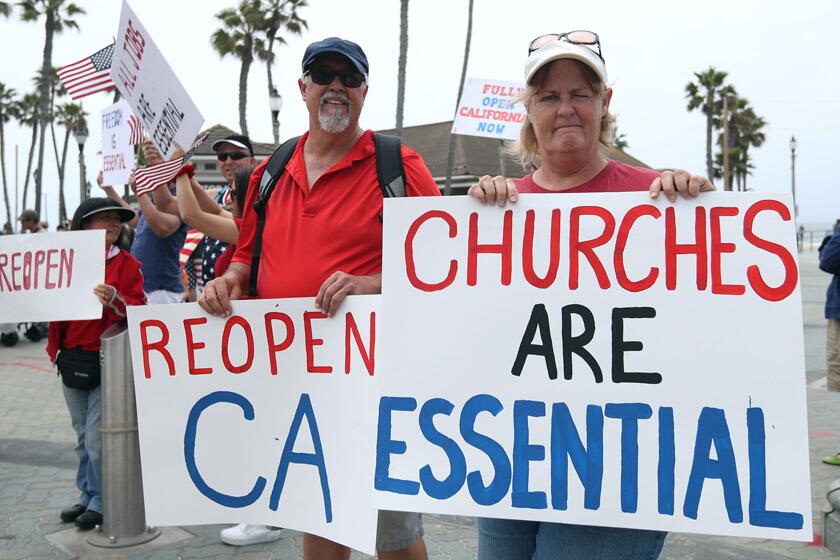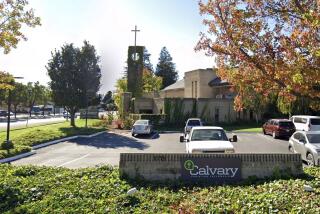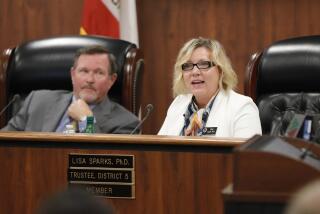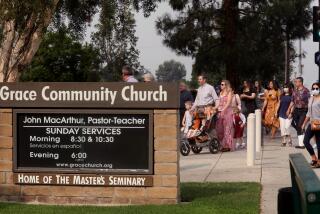Orange County deems in-person church ‘essential,’ says rules too restrictive for megachurches
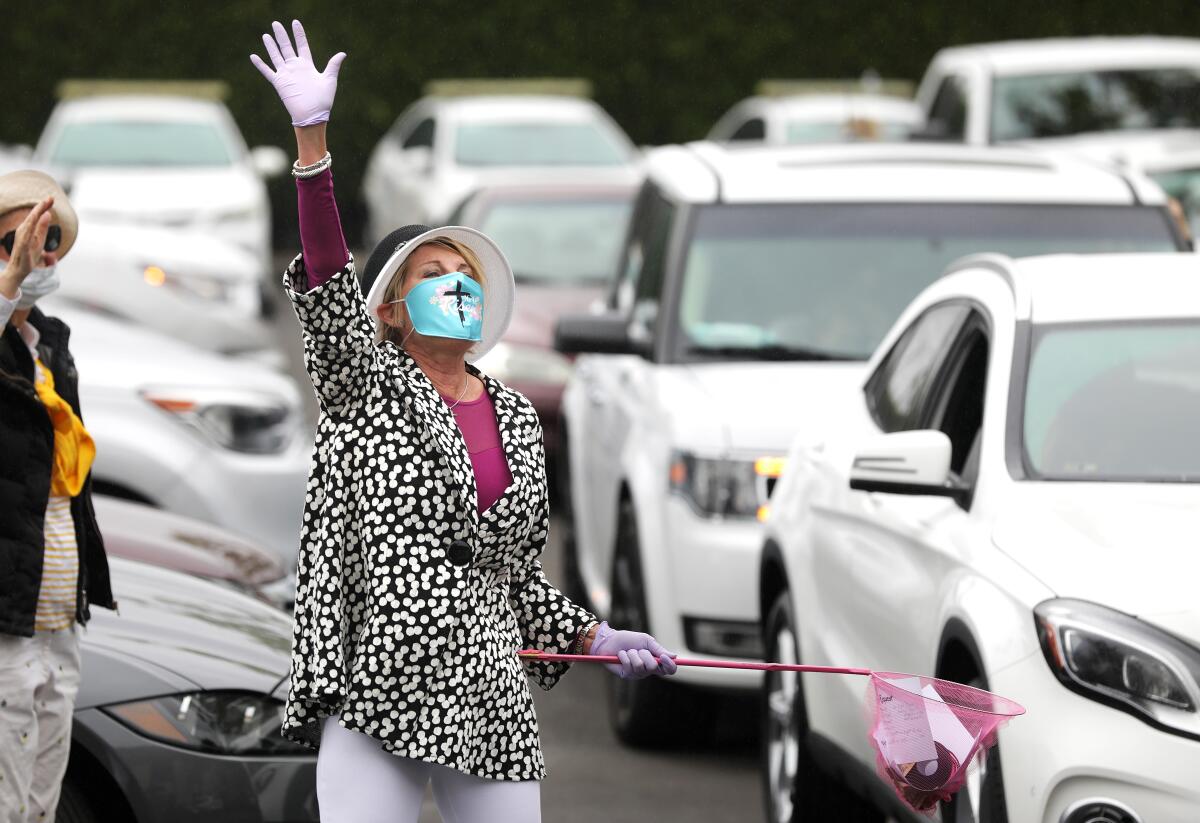
Orange County supervisors on Tuesday declared religious services “essential” and expressed concerns that Gov. Gavin Newsom’s plan to reopen places of worship with major restrictions is too constraining for megachurches and other large institutions.
The unanimously approved resolution, proposed by Chairwoman Michelle Steel, makes clear the board’s belief that “gathering together in fellowship and worship in the faith of one’s choice is an ‘essential’ service, and we support the resumption of in-person religious assemblies,” starting this weekend.
Under the recently revealed guidelines, houses of worship must limit total attendance to 25% of a building’s capacity or a maximum of 100 people, whichever is lower. High-traffic areas and commonly touched surfaces must be thoroughly cleaned and regularly disinfected.
California has released new coronavirus health guidance for religious services, limiting total attendance to 25% of a building’s capacity.
Congregants also should be screened for fever or other symptoms of illness and are asked to use hand sanitizer and wear face coverings. Houses of worship also are discouraged from sharing items, and congregants and staff are asked to abstain from singing, shaking hands or hugging.
But some Orange County officials said those rules could hurt huge churches that regularly draw thousands to services.
“It’s too restrictive with the state guidelines right now,” Supervisor Lisa Bartlett said. “I understand what they are, they need to be followed, but at the same time, we need to push, push, push at the state level to have some flexibility.”
She said large churches would find it particularly difficult to comply with the attendance cap.
“There are a number of houses of worship that are very large, and 100 doesn’t even include 2% of their congregation,” she said. “For some of the very large houses of worship — one in my district is Saddleback Church — they would literally have to hold Mass every five minutes in order to get their entire congregation through in a given Sunday.”
More coronavirus cases have been tied to two Mother’s Day church services in Mendocino and Butte counties, officials announced this week.
Steel characterized Tuesday’s resolution as a statement that “Orange County supports the right of our residents to practice their faith, and that we believe the right is essential.”
“We begin each of our meetings with an invocation because we understand the importance of joining together in prayer,” she said. “Orange County residents have gone without communal prayer for Easter, Passover and Ramadan, and our residents of all different faiths have missed their communal prayers for more than two months.”
Houses of worship in Orange County and throughout the state have for weeks been unable to hold in-person services under California’s stay-at-home order, which was put in place to stem the spread of the coronavirus.
However, the board’s resolution doesn’t preclude Orange County from being subject to orders from the California Department of Public Health — including new guidelines unveiled Monday that allow in-person religious assemblies to resume, subject to restrictions.
“Does it transcend the CDPH guidance? In my view, no,” County Counsel Leon Page said of the resolution.
The state’s plan will alter religious services in dramatic ways, and it’s unlikely to end the push by some churches to allow more regular worship operations.
State health authorities still strongly recommend that places of worship “continue to facilitate remote services and other related activities for those who are vulnerable to COVID-19.”
Dozens who addressed the board Tuesday said these restrictions are untenable and infringe on their 1st Amendment rights.
Gathering in fellowship, speakers said, is more than a spiritual experience: It has profound and positive impacts on their physical and mental health.
Others said it makes no sense that houses of worship haven’t been considered essential businesses, while like large retailers, including liquor stores and marijuana dispensaries, have been able to keep their doors open.
Supervisors said they too have missed attending church in person.
“I have lamented from this dais numerous times that I missed Easter service for the first time in my life this year,” Supervisor Andrew Do said. “And it still causes me a lot of personal grief — so much so that I would change the route that I run so that I can run past a church so that I can pray at an altar outside.”
The latest maps and charts on the spread of COVID-19 in Orange County, including cases, deaths, closures and restrictions.
As California and the rest of the nation lift coronavirus-related restrictions, churches have emerged as a particularly heated battleground issue.
President Trump on Friday declared that he was designating churches as “essential” businesses so they could reopen immediately. The U.S. Department of Justice also sent a letter to Gov. Gavin Newsom’s administration warning that the state’s stay-at-home order may discriminate against religious groups and violate their constitutional rights.
However, the 9th Circuit Court of Appeals has upheld Newsom’s ban on in-person church services.
The 9th Circuit Court of Appeals upheld California Gov. Gavin Newsom’s ban on in-person church services due to the coronavirus crisis.
After 21 days, the state Department of Public Health will assess the effect of the latest restrictions and provide further direction as part of a phased-in restoration of activities in places of worship.
“It is, to my mind, absolutely absurd that in the United States of America we are discussing, much less debating, the question of whether churches are essential,” said Supervisor Don Wagner.
“All we need to say is, ‘Governor, get out of our damn way while we pray,’” he said.
Times staff writers Monte Morin, Alex Wigglesworth, Sonali Kohli and Matthew Ormseth contributed to this report.
More to Read
Sign up for Essential California
The most important California stories and recommendations in your inbox every morning.
You may occasionally receive promotional content from the Los Angeles Times.
